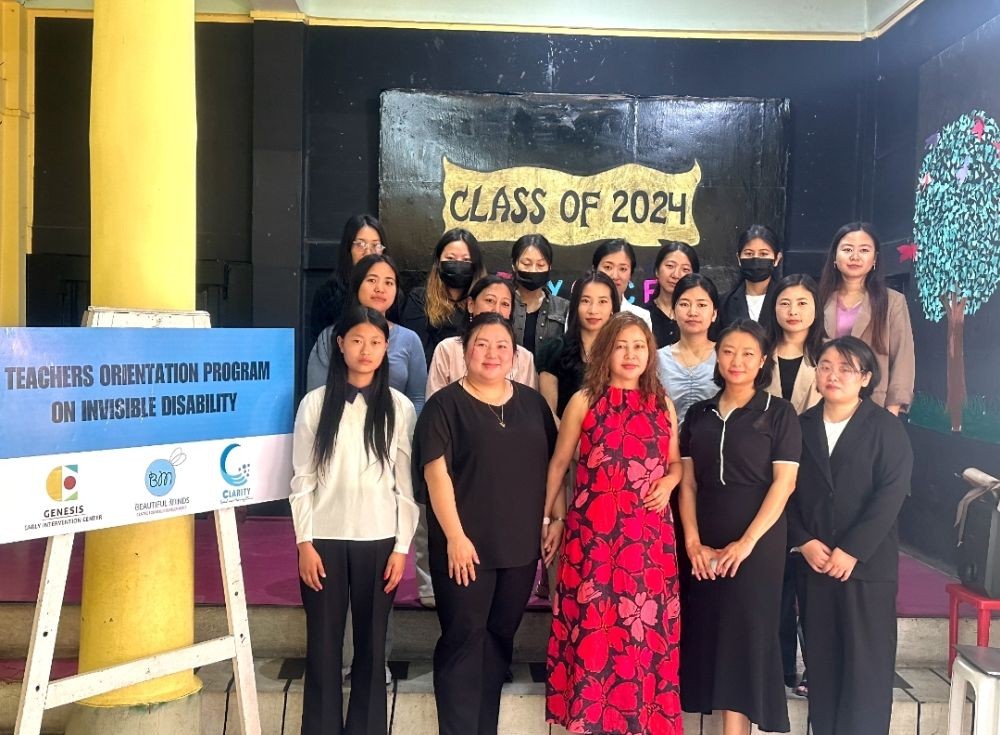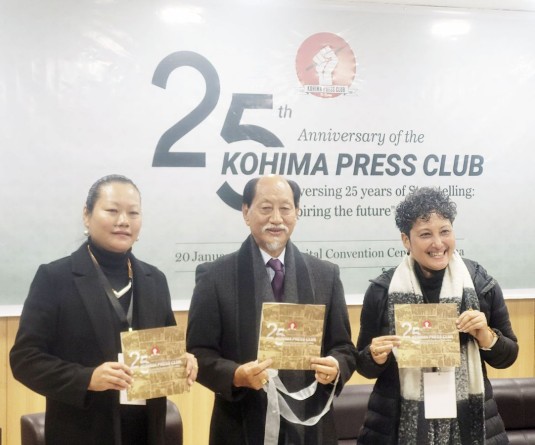Joyance Pre School administrator, Chanda Sahi with the resource persons and staff of Joyance Pre School during teachers orientation program on invisible disability in Kohima on April 13.

Our Correspondent
Kohima| April 14
A one-day teachers’ orientation programme on Invisible Disability was held at Joyance Pre School Kohima on April 13. The programme was conducted in collaboration with Clarity Speech & Hearing Clinic, Beautiful Minds Centre for Child Development and Genesis Early Intervention Center, Kohima.
Speaking on the occasion, Henwasin Sweety Lorin, audiologist and speech language pathologist, Managing Director, Beautiful Minds for Child Development and proprietor of Clarity Speech & Hearing Clinic Kohima said that speech and language are central to the human experience.
Lorin said that severe disruptions in speech or language acquisition have both direct and indirect consequences for child and adolescent development, not only in communication, but also in associated abilities such as reading and academic achievement that depend on speech and language skills.
Lorin said that development of communication skills begins early in childhood and is foundational to the ability to gain access to culturally transmitted knowledge, organize and share thoughts and feelings, and participate in social interactions and relationships.
Tumchobeni, MSc clinical psychologist specialised focus on special education certified early interventionists and proprietor of Genesis Early Intervention Centre, Kohima said that invisible disability refers to a condition or impairment that isn't immediately apparent to others.
These disabilities can impact a person's daily life and functioning, even though they may not be visibly apparent, she said. We orient and help teachers identify neurological conditions like Autism Spectrum Disorder, ADHD, intellectual Disability and Specific Learning Disability, she said.
Also highlighting on behavioral therapy, she explained that it is a type of psychotherapy that focuses on changing unhealthy behaviors by identifying and modifying patterns of thinking and actions.
Behavioral therapy/intervention helps students/ children develop and improve attention, social skills, communication and helps in improving their overall development. It is one of the core management option for children with invisible disabilities, she stated.





